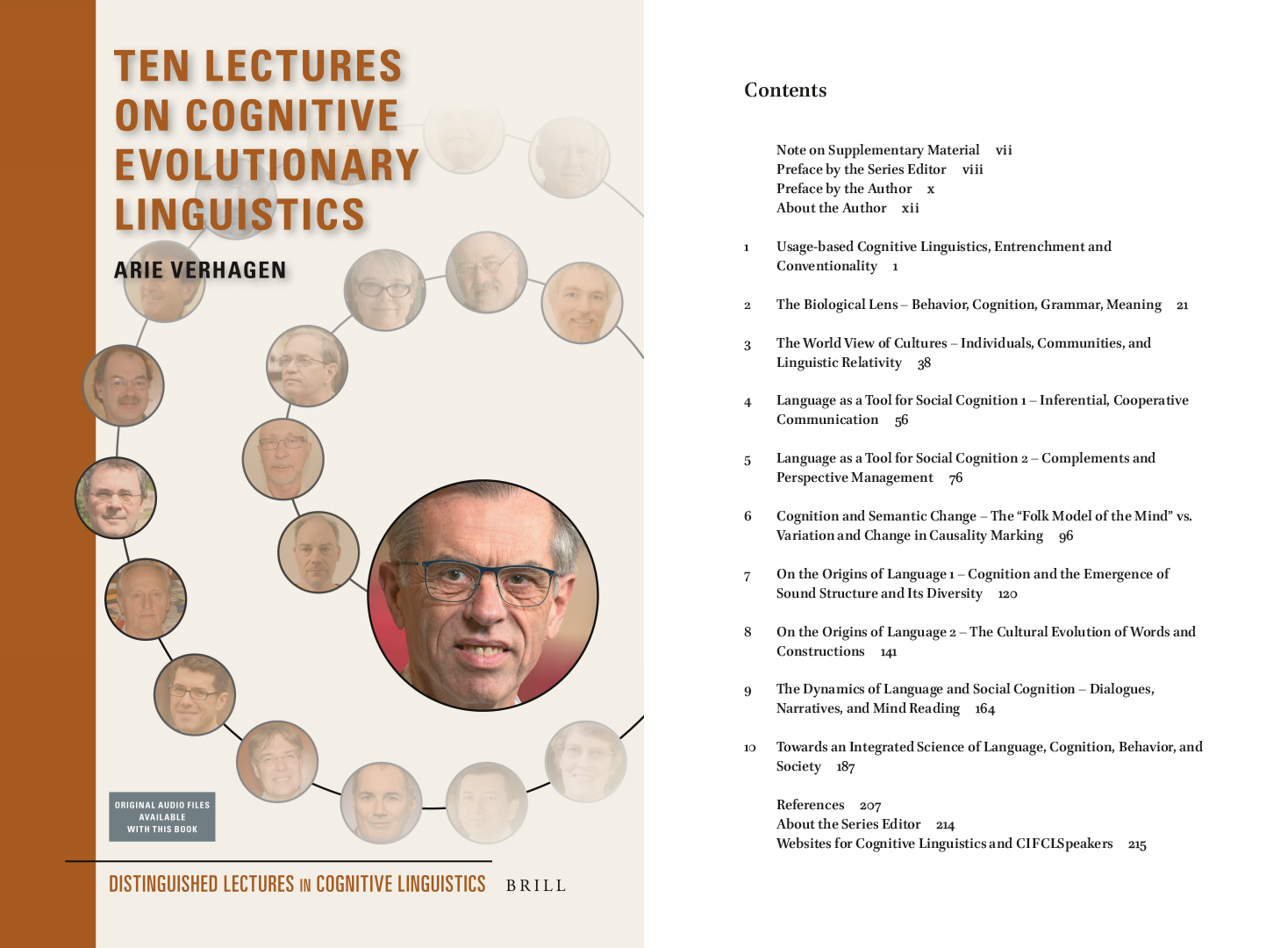Lecture: Evolution in Linguistics
Now on YouTube: Evolution in linguistics – theoretical innovation, metonymy, and miscommunication. This is the talk I gave on 12 May, 2023, in the online lecture series Innovation in Linguistics, organized by the journal Cognitive Semantics. I address the reasons why 19th century linguists failed to recognize the depth of the conceptual innovation resulting from Darwin’s discoveries, how 20th and 21st century linguistics does better, but is still in need of using its terminology much more rigidly.
The printed version has been published in Cognitive Semantics 10 (2024): click here.
Afscheidscollege 11 oktober 2021!
[A message about my valedictory lecture that will take place on October 11, 2021, in Dutch.]
Van uitstel is toch geen afstel gekomen: mijn afscheidscollege, dat gepland was voor vrijdag 27 maart 2020 (en later voor 31 mei 2021), vindt nu definitief plaats op maandag 11 oktober 2021 om 16:00 uur, in het Academiegebouw van de Universiteit Leiden, onder de titel Verbeelding in taal – een Jip-en-Jannekeperspectief. De officiële uitnodiging is hier te downloaden.
Onder de nieuwe corona-maatregelen kunnen er maximaal 150 mensen in de zaal. Je kunt/moet je aanmelden via dit online formulier.
President-elect of SLE (2021-2022)
Proud to have been appointed president-elect of the SLE (Societas Linguistics Europaea) at the annual members’ meeting of 2021!
10 Lectures on Cognitive Evolutionary Linguistics
On April 29, Ten Lectures on Cognitive Evolutionary Linguistics was published by Brill (Leiden/Boston). These contain the transcripts of the 10 lectures I presented in Beijing (China) in October 2018, as part of the “10 Lectures Series” of the China International Forum on Cognitive Linguistics. Table of Contents
Beijing Forum Lectures, October 2018
From 8 till 12 October, 2018, I will be speaking in the 10 Lectures series of the China International Forum on Cognitive Linguistics. Starting with the basic scientific and cognitive commitments that characterized cognitive linguistics from the start, and building on my own work as well as that of several previous speakers in the series, I will make explicit in what way the different perspectives within cognitive linguistics can be seen as contributing to a coherent, unified view of human communication (“Cognitive Linguistics 2.0”). The biological perspective plays a crucial role in this endeavour. First, in terms of content, we can begin to understand in what way human ways of communicating, including the use of language, share properties with animal communication, as well what makes human communication, linguistically and otherwise, biologically special. Second, in terms of methodology, in grounding the scientific commitment of cognitive linguistics in that of biology. The points will be illustrated with specific case studies from different languages, different historical periods, and different genres (from conversation to written narratives).
On my research of the last 30 years
Now downloadable for free: Dirk Geeaerts (2016), Grammar in the context of intersubjective usage.
The December 2016 issue of the journal Nederlandse Taalkunde/Dutch Linguistics, published by Amsterdam University Press, contains a great series of papers on various aspects of my research of the last 30 years. It includes an insightful, comprehensive, and simultaneously succinct (13 pages) overview by Dirk Geeraerts (Leuven University). This article is freely available, and can be downloaded here.

